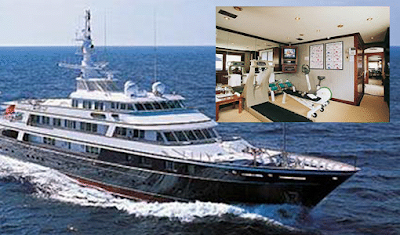Tuesday, February 2, 2010
Developing Self-Discipline
When British psychologist William Mcdougall (1871 ~ 1938) said, “Will is character in action,” what did he mean? Simply that willpower is the source of our action, and, therefore, the source of our character. For when we will to do good, and do so, we have good character, but when we will to neglect our responsibilities, we have bad character.
When people complain or are dissatisfied with their lives, they often blame others for their unhappy state of affairs. If it isn’t the fault of others, then they claim it is due to ‘bad luck’ or how ‘unfair’ the world is. They seem to blame everything except themselves. Such an attitude is self-defeating, for complaints are wasted effort and divert attention from possible solutions. They don’t yet understand that life doesn’t happen TO us. It happens BECAUSE of us. They haven’t awakened to the fact that destiny or fate is not arbitrary and predetermined. Rather, we create our own destiny. After all, our present conditions were brought about by our past actions, and our present actions will create our future circumstances.
Why do people blame everything but themselves for their unhappiness? Because it is painful to admit that our lack of success is not due to any quirk of fate, but to our own lack of responsiveness to the opportunities that were presented to us. But once we admit the truth, great power is unleashed. For then we will realize that our lives are not controlled by the whims of fate, but by ourselves, by our own actions, and by our own willpower. It is exciting to realize that we can do anything we set our mind to. Yet, after coming close to reaching this point, some then cop out by claiming they don’ t have any willpower, as if there was a willpower gene that somehow they are lacking.
If we find ourselves stuck in that space where we believe we lack willpower, what can we do? Begin by understanding the true meaning of willpower. It’s just another way of saying self-discipline. When you tell yourself you lack self-discipline, it is easier to understand that you can do something about it. You can develop it. But wait a minute! Doesn’t it take self-discipline to develop self-discipline? And if I don’t have any, how can I use what I don’t have?
Well, it is incorrect to say you don’t have ANY. You couldn’t have read this far without some discipline, so your challenge is not how to acquire it, but how to get MORE of it. If your doctor told you that you need to lift weights, you would start with light weights, gradually working your way up to the heavy ones, thereby increasing your power. So it is with self-discipline. Anyone can start from where they are and go from there.
Perhaps no other skill is as important to develop as self-disciple or self-control. It is the key to self-mastery and the achievement of your dreams. Now, let’s look at some steps you can take to increase your personal power.
1. Acknowledge your own responsibility. Admit that if you sit around doing nothing, you will achieve nothing.
2. Allow yourself to feel the resistance. For example, if you are a student that needs to be studying, but doesn’t feel like it, say something like the following to yourself. “I don’t feel like studying. I feel like pursuing some pleasure instead. But rather than running away, I allow myself to feel the resistance and I admit I need to study. I also need to develop self-discipline. And doing what we don’t like to do develops self-discipline. So, I welcome this opportunity to kill two birds with one stone (study for my exam and develop self-discipline).”
3. Take a few deep breaths. Relax and let go of any tension. Pause and visualize the action as if it were already completed. Study the image of the completed project in your mind for a few moments. This step prepares both your conscious mind and subconscious for action.
4. Now act. After doing so, you will feel a sense of relief as you free yourself from the stress that comes from ignoring an important task. Second, you will enjoy the pleasure of accomplishment. Third, you will discover the task was easier to do than you first imagined.
5. Relish the relief and pleasure you experience. Remember it. Savor it. Focus on it. For it will become the source of motivation. At first, the lure of relief and pleasure will be weak and the memory of it dim, but as you repeatedly do what you don’t feel like doing, the motivation to act will grow stronger and stronger, until a firm habit is formed.
6. Those who haven’t yet developed the habit of self-discipline avoid tasks because they focus on the effort that needs to be made. In their minds, effort is synonymous with discomfort. Change what you focus on. When facing a new task, focus on the relief and pleasure you will be experiencing. Also focus on the memory of how your imagination tricks you, always blowing things out of proportion. Remember that the task will be easier to do than your now believe.
7. When you launch your personal Self-Discipline Development Program, you will do two things: complete tasks and develop self-discipline. Of the two, developing self-discipline is more important. For once you have mastered that you will be able to do anything. So, it is important to be successful. Therefore, when starting out, don’t decide to work on the most urgent task, but choose the easiest one first and work your way up. Pretend you are working out in a gym for the first time. If you begin by trying to lift 100 lb. weights, you will probably feel overwhelmed and quickly give up. But if you start with 10 lb. weights, your workouts will be easy to do and your successes will motivate you to move on to bigger challenges. Take baby steps and work your way up. Trying to bite off more than you can chew will lead to failure.
8. Be gentle but firm with yourself. Act firmly in that you stop running away. Face your task, accept it, and accomplish it. Finish what you start. Follow through on every project. Focus on one task at a time. Don’t scatter your attention. But be gentle in the sense that you don’t have to do all your tasks immediately as long as you start doing some. Don’t expect to go from zero to a hundred in one second. Work up to it. Start slowly, but gradually pick up the pace as you develop your skills.
9. Expect to be tempted to avoid your tasks. Your mind will come up with rationalizations and excuses for putting off till ‘tomorrow’ what can be done today. Remain aware of your feelings and learn to think before you act. Use your reason (rational mind), not your emotions, to guide your actions. Do what is good FOR you instead of what FEELS good.
10. Once you learn how to quickly act on all the tasks, responsibilities, and challenges facing you, you will want to remain fit, always ready to act. Keep in shape by deliberately going out of your way to do things you don’t want to do, even if they are unimportant. The truth is, nothing is unimportant, for if doing something trivial helps maintain your self-discipline, it is no longer trivial. Remember that it is just like working out in a gym. After all, the workout I choose to do is unimportant; it is only the result (physical fitness) that is important. The same is true for your mental fitness. Look for opportunities during the day to ‘work out. ’
11. Once you can keep your level of self-discipline, you will be ready to move on to the next level by stretching yourself. Now you deliberately seek out difficult and complex challenges that you only dared to dream about in the past. Now that you have mastered self-control, you are ready to make those dreams come true. At this point, you are no longer paralyzed by task-avoidance. Each task you do frees up more time to work on the next project. You have now started on the path of endless growth.
Life is not something that happens to you, but you are something that happens to life. Decide today to give up the blame game and take responsibility for your own life by mastering the art of self-discipline.
original story by Chuck Gallozzi
Visit http://www.personal-development.com
Philippines Light Rail Transit Public Transportation
The Manila Light Rail Transit System (Filipino: Sistema ng Magaan na Riles Panlulan ng Maynila),[citation needed] popularly known as the LRT, is a metropolitan rail system serving the Metro Manila area in the Philippines. Its twenty-nine stations over 28.8 kilometers (17.9 mi) of mostly elevated track form two lines. LRT Line 1, also called the Yellow Line, opened in 1984 and travels a north–south route. LRT Line 2, the Purple Line, was completed in 2004 and runs east–west.
The LRT is operated by the Light Rail Transit Authority (LRTA), a government-owned and controlled corporation under the authority of the Department of Transportation and Communications (DOTC). Along with the Manila Metro Rail Transit System (MRT, also called the Blue Line), and the Philippine National Railways (PNR), the LRT is part of Metro Manila's rail transportation infrastructure known as the Strong Republic Transit System (SRTS)
Stations
 The People Power Revolution was a series of nonviolent and prayerful mass street demonstrations in the Philippines that occurred in 1986. It was the inspiration for subsequent non-violent demonstrations around the world including those that ended the communist dictatorships of Eastern Europe.
The People Power Revolution was a series of nonviolent and prayerful mass street demonstrations in the Philippines that occurred in 1986. It was the inspiration for subsequent non-violent demonstrations around the world including those that ended the communist dictatorships of Eastern Europe.

 In 1990, it was voted by the BMW Tropical Beach Handbook as one of the best beaches in the world
In 1990, it was voted by the BMW Tropical Beach Handbook as one of the best beaches in the world
 Barasoain Church (also known as Our Lady of Mt. Carmel Parish) is a Roman Catholic church built in 1630 in Malolos City, Bulacan.
Barasoain Church (also known as Our Lady of Mt. Carmel Parish) is a Roman Catholic church built in 1630 in Malolos City, Bulacan.
 Laguna de Bay (Filipino: Lawa ng Bay; English: Laguna de Bay is the largest lake in the Philippines and the third largest freshwater lake in Southeast Asia
Laguna de Bay (Filipino: Lawa ng Bay; English: Laguna de Bay is the largest lake in the Philippines and the third largest freshwater lake in Southeast Asia
 Malacañan Palace, is the official residence of the President of the Philippines.
Malacañan Palace, is the official residence of the President of the Philippines.






















 >
>




















































No comments:
Post a Comment